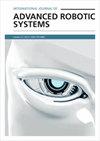机器人服务故障与恢复:文献综述和未来方向
IF 2.1
4区 计算机科学
Q2 Computer Science
International Journal of Advanced Robotic Systems
Pub Date : 2023-07-01
DOI:10.1177/17298806231191606
引用次数: 0
摘要
机器人服务故障和随后的用户行为反应已成为一个突出的科学问题,值得多学科关注。对现有文献的回顾对于综合和全面评价这些研究至关重要。为此,本研究进行了结构化的系统文献综述,以评估与服务机器人故障相关的概念、维度、用户反应(包括认知和行为)以及恢复策略的相关研究。先前的研究在很大程度上遵循了人际服务互动的概念,并确定了服务机器人失败的几个主要后果,包括情绪和认知反应、消极态度、失败归因以及相关的行为和行动反应。值得注意的是,机器人服务故障的恢复策略可分为两种主要类型:机器人启动策略和人工干预策略。建议在五个关键领域对机器人服务故障进行进一步研究,包括探索机器人服务故障的独特性,从心理上调查用户对机器人故障的反应,确定新的机器人服务故障补救策略,发展机器人服务故障及其补救的概念,以及采用混合方法和互补研究方法。本文章由计算机程序翻译,如有差异,请以英文原文为准。
Robot service failure and recovery: Literature review and future directions
Robot service failure and subsequent user behavioral responses have emerged as a prominent scientific issue, warranting attention from multiple disciplines. A review of existing literature is crucial to synthesizing and comprehensively evaluating these studies. To this end, the present study undertook a structured systematic literature review to assess the relevant research on the concepts, dimensions, user response (including cognitional and behavioral), and recovery strategies related to service robot failure. Prior studies have largely followed interpersonal service interaction concepts and have identified several major consequences of service robot failure, including emotional and cognitive responses, negative attitudes, attributions of failure, and related behavioral and action-based responses. Notably, recovery strategies for robot service failure can be categorized into two main types: robot-initiated strategy and human intervention strategy. Further research on robot service failure is recommended in five key areas, including exploring the uniqueness of robot service failure, psychologically investigating user responses to robot failure, identifying novel remedy strategies for robot service failures, evolving the concepts of robot service failure and its remedies, and employing mixed-method and complementary research approaches.
求助全文
通过发布文献求助,成功后即可免费获取论文全文。
去求助
来源期刊
CiteScore
6.50
自引率
0.00%
发文量
65
审稿时长
6 months
期刊介绍:
International Journal of Advanced Robotic Systems (IJARS) is a JCR ranked, peer-reviewed open access journal covering the full spectrum of robotics research. The journal is addressed to both practicing professionals and researchers in the field of robotics and its specialty areas. IJARS features fourteen topic areas each headed by a Topic Editor-in-Chief, integrating all aspects of research in robotics under the journal''s domain.

 求助内容:
求助内容: 应助结果提醒方式:
应助结果提醒方式:


